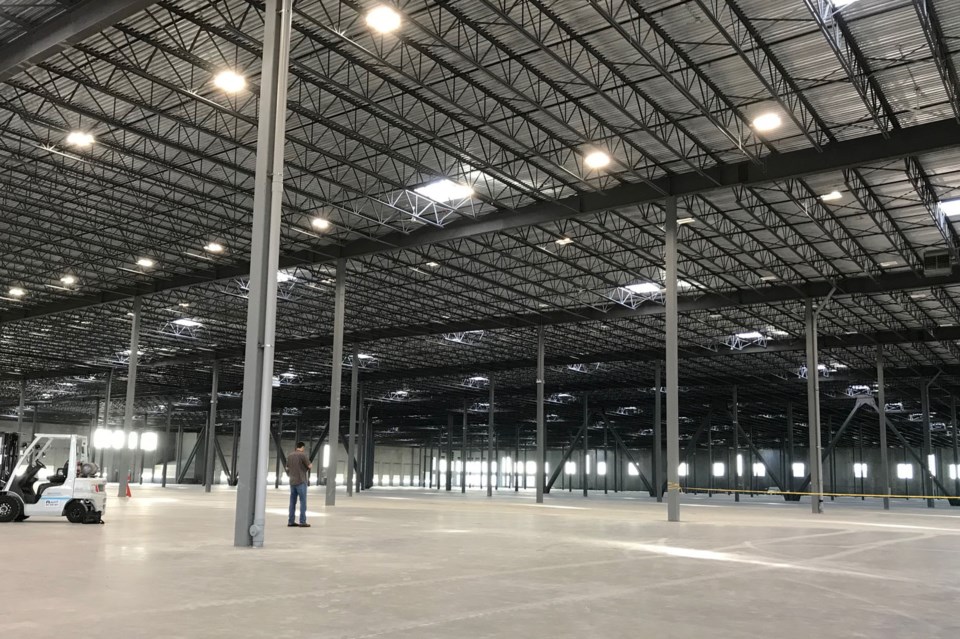The squeeze on industrial land continues to plague Metro Vancouver, with the region’s low vacancy rate and dwindling supply holding strong in the second quarter of 2023.
The region’s industrial vacancy rate inched up marginally to one per cent in the second quarter, according to a July 19 report from commercial real estate firm Avison Young (Canada) Inc. Sublease space accounted for 0.08 per cent of the region's industrial inventory. The overall availability rate was 2.7 per cent, unchanged from the first quarter.
“Despite the volatility in the market and changes in financing, we still have no new industrial lands that are likely to transact, and long-term supply remains a serious concern for the overall Metro Vancouver industrial landscape,” said Ryan Kerr, principal at Avison Young, in an email to Glacier Media.
A healthy industrial market typically sits somewhere in the 4.5 to seven per cent vacancy range, he said.
A July 20 report from Jones Lang LaSalle Real Estate Services Inc. (JLL) pegged the region’s vacancy rate for industrial space at 1.3 per cent, the highest it's been in two years. JLL attributed the increase to economic uncertainties and the downsizing of third-party logistics firms and manufacturers even as large blocks of space continued to become available.
A lack of available land and rising values have been top issues for the industrial market so far this year. Industrial land prices surged between August 2020 and June 2022 amid ultra-low interest rates and increased demand tied to the sector.
The average rent per square foot increased eight per cent to $21.95 in the second quarter of 2023 compared with the same period a year ago, according to Avison Young’s report.
When it comes to new supply, Metro Vancouver currently has 7.1 million square feet under construction across 42 projects. Roughly 80 per cent of the space under construction has been pre-leased or pre-sold, according to Kerr.
The region would need 7.7 million square feet of new or existing vacant inventory to achieve a “healthy market.” However, three to five million square feet is typically built within a year. Over the last decade, sales have outpaced new supply, Kerr said.
Business in Vancouver reported at the beginning of 2023 that there was an increasing need for large bay space in new industrial construction.
Among the 1.6 million square feet of industrial strata currently being built, 20 per cent is dedicated to large bay space. Small bay space accounts for most of the industrial strata construction at 74 per cent, according to the Avison Young report.
When asked if what is being built is matching up to what is needed in the market, Kerr said “simply, no.”
Going forward, Kerr believes industrial investment will continue throughout the year as the industrial assets remain “very liquid” in Metro Vancouver.
“By the end of the year, I think there will be some good transaction volume in the investment market. Leasing activity has recently calmed to a more traditional steady pace, and we are seeing some large industrial lease deals get done over the summer,” he said.
Notable transactions for the second quarter include SmartShop Asset Management LLC’s purchase of a 90,776-square-foot self-storage facility at 1615 Franklin St. in Vancouver.
Meanwhile, A2Z Capital acquired 79,652 square feet through the purchase of a warehouse at 9388 North Fraser Crescent in Burnaby, according to JLL.
“We believe activity in all industrial sectors (land, strata, leasing, etc.) should pick back up in September after everyone takes the much-needed holiday over the summer months,” Kerr said.



